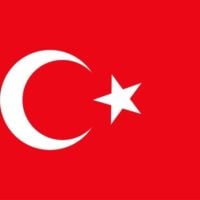Deadline: 19-Feb-24
The Brazil-UK PACT (Partnering for Accelerated Climate Transitions) has launched a call for proposals in the Forest Sector.
The UK Government is looking to extend its support to the forest sector in Brazil, through a technical assistance and capacity-building project aimed at supporting the National Foundation for Indigenous Peoples (FUNAI) to strengthen territorial and environmental management of indigenous lands.
This initiative is being delivered through the Brazil-UK PACT (Partnering for Accelerated Climate Transitions) Country Programme, and it is aligned with the UK-Brazil Partnership on Green and Inclusive Growth launched in May 2023.
In this call for proposals, Brazil-UK PACT is responding to a priority identified during engagement with the Ministry of Indigenous Peoples and the National Foundation for Indigenous Peoples (Fundação Nacional dos Povos Indígenas – FUNAI).
Objectives
- The project’s main objective is to guarantee and promote the protection, recovery, conservation, and sustainable use of the natural resources of Brazil’s indigenous lands and territories.
Pillars
- The focus will be on three pillars:
- Pillar 1: Land Regularisation
- Conduct land use and occupancy assessments in claimed areas, as well as in areas already in the identification and delimitation study phase; Conduct socio-environmental assessments and the collection of environmental, cartographic, and land information to support multidisciplinary studies of indigenous lands.
- Pillar 2: Environmental and Territorial Management
- Conduct an evaluation of indigenous training in Environmental and Territorial Management; carry out a study/diagnosis on REDD+ programmes in South and Central American countries, aimed at collective territories and indigenous peoples; develop one instrument for territorial and environmental management of Indigenous Lands; create a database of priority areas within Indigenous Lands for national-scale native vegetation restoration.
- Pillar 3: Capacity building
- Produce informative audiovisual material, targeting indigenous audiences, on climate change and indigenous peoples to strengthen environmental and territorial management of indigenous territories.
- Pillar 1: Land Regularisation
Funding Information
- The support value across all three pillars will be up to £600,000 per year, with a maximum of £1,200,000 over up to 24 months.
Activities
- Pillar 1 – Land Regularisation
- Assess the current status of use and occupation in claimed areas or those already under identification and demarcation studies, particularly on public tracts.
- Conduct supplementary socio-environmental studies and gather environmental, cartographic, and land information to support ongoing strategic multidisciplinary studies of indigenous lands.
- Develop a guidance manual for multidisciplinary identification and demarcation studies published in consultation with FUNAI employees, collaborators, and other professionals involved in Indigenous Lands identification and demarcation processes.
- Pillar 2 – Environmental and Territorial Management
- Conduct an assessment of environmental and territorial management programs targeted towards indigenous peoples and present proposals for enhancing initiatives for the training of indigenous technicians in environmental and territorial management. This may include:
- National survey of training programs in territorial and environmental management for indigenous people and the training institutions and centres.
- National survey of various groups of indigenous environmental managers, their activities in territories and in the surrounding society, the remuneration for their work, and the situation of graduates.
- Conduct a comparative analysis and propose improvements to foundational public policies in the Brazilian context regarding the Reducing Emissions from Deforestation and Forest Degradation (REDD+) program. The comparative analysis should be conducted using countries in Central and South America, with a focus on collective territories and indigenous peoples. This may include:
- A technical report detailing the REDD+ analysis on other countries in the Amazon basin, with a focus on communal territories and indigenous peoples.
- A technical report detailing the REDD+ analysis in Brazil.
- Development of the Territorial and Environmental Management Plan (PGTA) in the Miratu Indigenous Land. This may include:
- Preparation of a Work Plan containing the methodology and schedule for the execution of necessary stages.
- Technical report on the awareness and mobilization stage.
- Conduct an assessment of environmental and territorial management programs targeted towards indigenous peoples and present proposals for enhancing initiatives for the training of indigenous technicians in environmental and territorial management. This may include:
- Pillar 3 – Capacity Building
- Produce informative videos on the topic of climate change and indigenous peoples, with an emphasis on REDD+ mechanisms, using accessible language tailored to indigenous communities. This may include:
- A series of up to seven animated videos with graphic resources to aid in visualizing the content. Each with an average duration of 5 (five) minutes, covering the following topics: (i) carbon cycle, (ii) climate change and indigenous peoples (adaptation and mitigation), (iii) What is REDD+, (iv) Jurisdictional REDD+, (v) Carbon market, (vi) “The rules of the game” – REDD+ safeguards, (vii) Governance and benefit-sharing.
- The audiovisual material will serve various purposes, targeting indigenous audiences and preferably created by indigenous communicators. Desired professional profile: Audiovisual/communications specialist, climate policy expert, indigenous communicator.
- Produce informative videos on the topic of climate change and indigenous peoples, with an emphasis on REDD+ mechanisms, using accessible language tailored to indigenous communities. This may include:
Eligibility Criteria
- Applicant
- Only non-profit organisation can apply as lead organisation.
- For-profit organisations can participate in the call for proposals as partners within a consortium.
- Government agencies and/or departments are not eligible to apply either as a lead organisation or partner in a consortium.
- All consortia must have a local organization as the lead Implementing Partner. A local organization is understood as an entity operating in Brazil under a National Register of Legal Entities (CNPJ). Other partners in the consortia do not necessarily need to be local organisations.
- Project
- Proposals must align with the strategic priorities outlined in these terms of reference.
- Budgets should not include capital expenses or tangible assets.
- For proposals addressing Option A, the project value should not exceed £600,000 per year, with a maximum total budget of £1,200,000 over a total performance period of 24 months.
- For proposals addressing Option B or C, the project value should not exceed £300,000 per year, with a maximum total budget of £600,000 over a total performance period of 24 months.
- Application
- Applications must be coherent and legible.
- All documents must be properly filled out and sent in a single email.
- Applications and all forms of communication with the program must be submitted in English.
For more information, visit UK PACT.









































